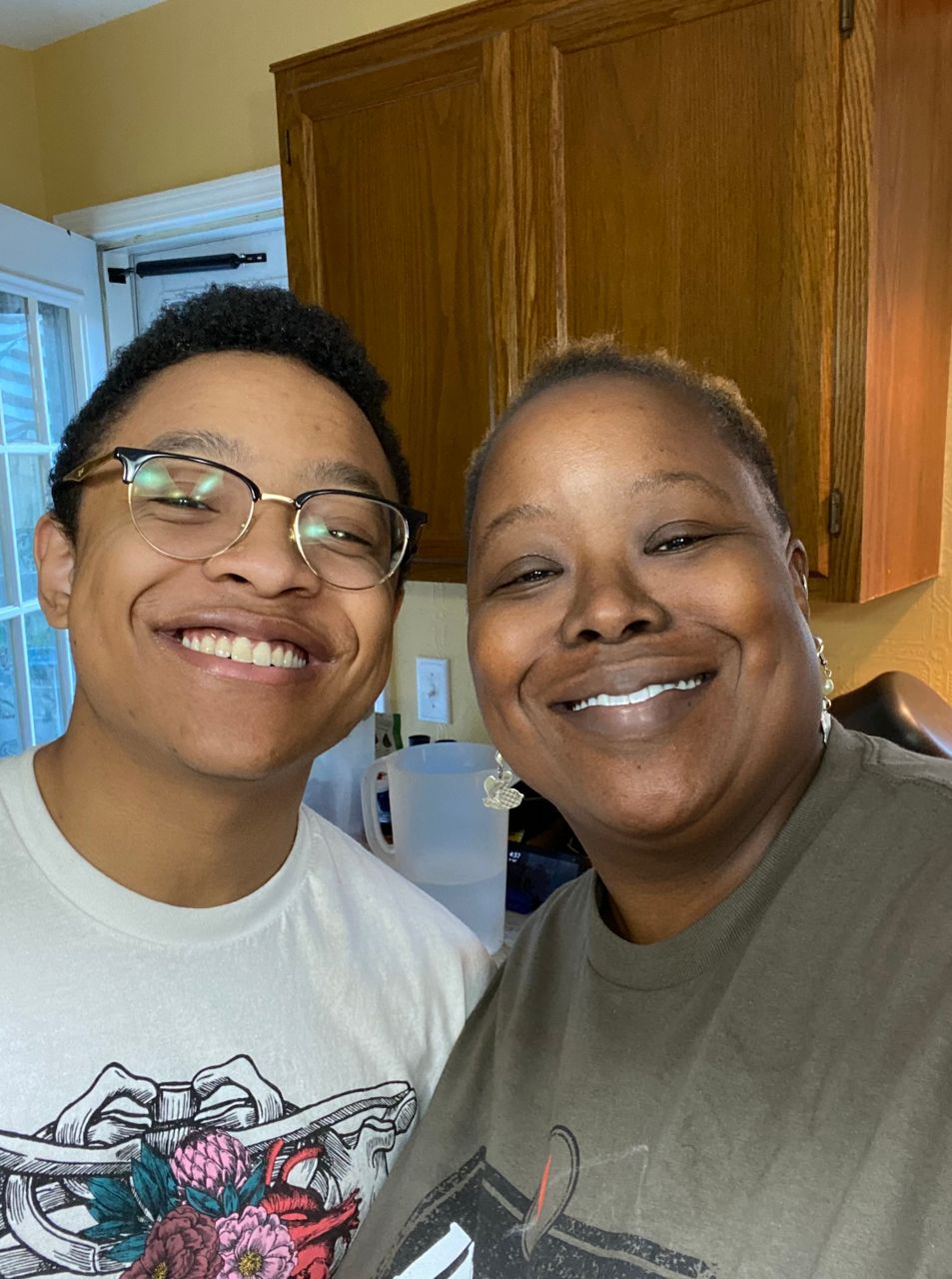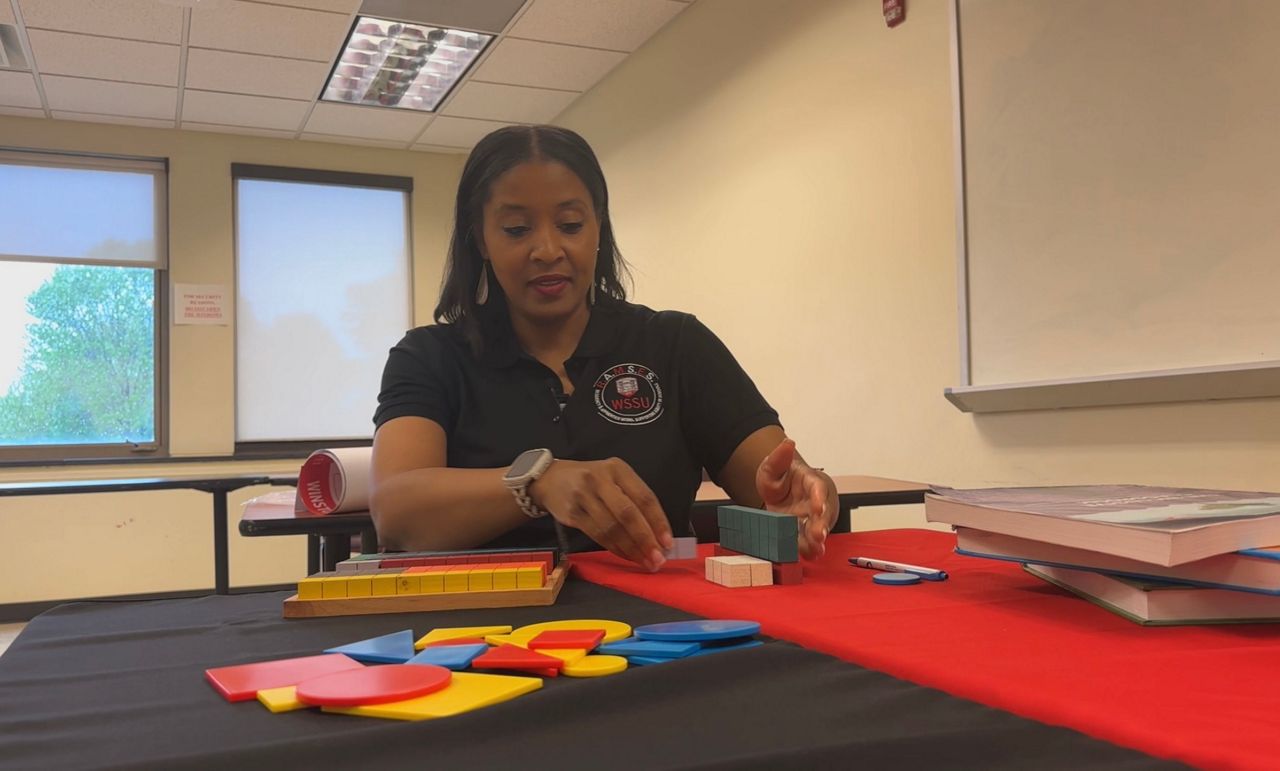WINSTON-SALEM, N.C. — Around 200,000 students in North Carolina are struggling to find teachers.
What You Need To Know
- RAMSES program helps provide free tuition for master's degree students looking to be special education teachers
- 45% of public schools reported vacancies in special education positions
- North Carolina students in special education total 13% of the entire student body
- The program kicks off in the fall at Winston-Salem State
Katrina McCoy-Scott said her journey to becoming a special education teacher started in the 2000s, when her son, who has autism, was born.
“Being in school, socializing is 100% of what you do every day. And so being OK with him, not being that child who always socialized, being OK with him being the child who hums and spins and chews on his sleeves and just does all of these different things. That was a struggle,” McCoy-Scott said.
She said her son, who will soon be 24, was not always set up for success by his teachers.

“When they labeled him, they also dismissed him. And so I had to be that mom that was constantly, 'that's not going to happen. Like, no, he's amazing. You're going to respect and honor him. You're going to educate him. You're going to fight for him just as I'm fighting for him.' I had to have a lot of one-on-one conversations with a lot of teachers,” McCoy-Scott said.
She said the struggle even continued as he began college, and two years ago she began working toward becoming certified to teach special education at Winston-Salem State University in the Master of Arts in Teaching program.
“I need to stand out here and fight for these babies who have different special education intellectual needs,” McCoy-Scott said.
In the Master of Arts in Teaching program at WSSU, there are multiple categories, including birth to kindergarten teachers, elementary school and middle school, special education and health and physical education.
However, special education teachers are hard to come by. The U.S. Board of Education says as of May 2023, 45% of public schools reported vacancies in special education positions and 78% reported difficulties in hiring staff.
Some reasons potential teachers are not able to get a degree is the increased price of tuition, the time for school and low wages. North Carolina is paying special education teachers in secondary school $53,330 in 2023, according to the U.S. Bureau of Labor Statistics. That is in the lowest bracket of pay, with median pay across the country at $66,620, according to the website.
WSSU’s RAMSES (Residency and Apprentice Model: Supporting Equity in Schools) program is helping students who already have an undergraduate degree achieve mentorship and instructional support while completing the North Carolina initial licensure through the school's Master of Arts in Teaching program for special education.
“It's just not North Carolina, but because there are so many vacancies and federal law requires that students with disabilities be taught by qualified teachers who know how to teach people with disabilities. So caseloads are rising for those teachers who are there … it is an emergency situation because there are not enough teachers there to provide the support that their students with disabilities need,” said April Whitehurst, assistant professor of special education at WSSU.
The National Center for Education Statistics said around 13% of students are served under the Individuals with Disabilities Education Act, meaning around 200,000 students in the state fall under special education in N.C.
According to a press release from WSSU from last November, the school was awarded $1,172,722 by the Office of Special Education Programs (OSEP) for the RAMSES apprenticeship and residency program, along with other grant funding over the course of five years.
Mia Thompson-Smith, is a Master of Arts in Teaching special education candidate in the RAMSES program and current teacher assistant.
“I went to [teach] high school because originally I wanted to be an English teacher, and I wanted to do music as well. So like English and chorus were my thing. And then, you know, I think the Lord kind of refered me somewhere else and said, 'OK, you know, they need this particular focus.' And so when I was exposed to that particular focus with special education …” Thompson-Smith said.

Thompson-Smith is also a mom, with one of her children being diagnosed with ADHD, experiencing struggles in her child’s education.
“When it comes to learning, period, we have a stigma where we feel like a lot of people categorize, put you in this particular box and say, 'OK, this is about as much as you can do because they have this label on them.' And labels are exactly what they are. The limitation is up to you. The label does not have to define you,” Thompson-Smith said.
As part of the RAMSES program, Thompson-Smith can take part in many benefits, including paid tuition and fees, a full-year apprenticeship in the classroom, WSSU tutoring, writing, tech and counseling services, the ability to apply for emergency funds and more. A current grant from the National Center of Teacher Residency to help develop the program is helping fund her journey.
“Something that I don't think that I'll ever regret being able to be a part of this RAMSES program and the actual advantages and the benefits that it's given me to even encourage others who are interested in the program to be in. So it's been a wonderful experience so far,” Thompson-Smith said.
Whitehurst says the inaugural year of the program was to plan to maximize its benefits. The program will kick off in the fall.
“After five years, 50 students will have gone through, and we will have 50 effective teachers in their school's system,” Whitehurst said.
Besides creating more teachers to fill in the gap in special education, Whitehurst said the HBCU also hopes to have more special education teachers of color enter the education system.



